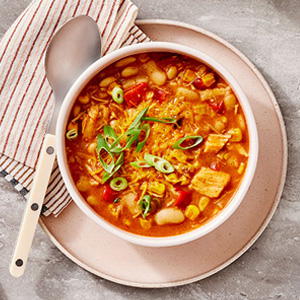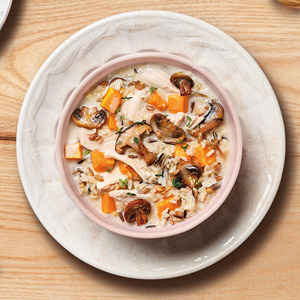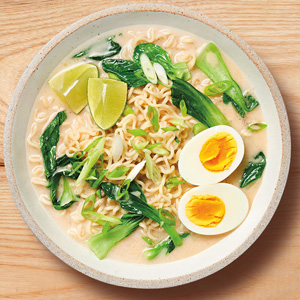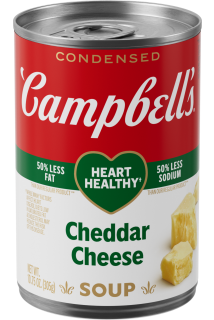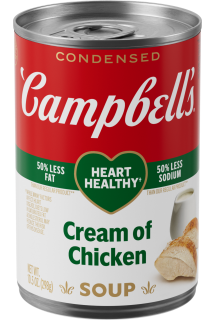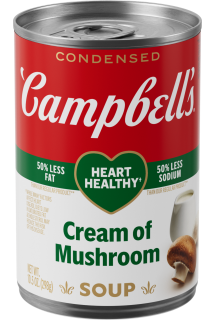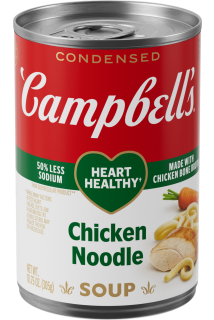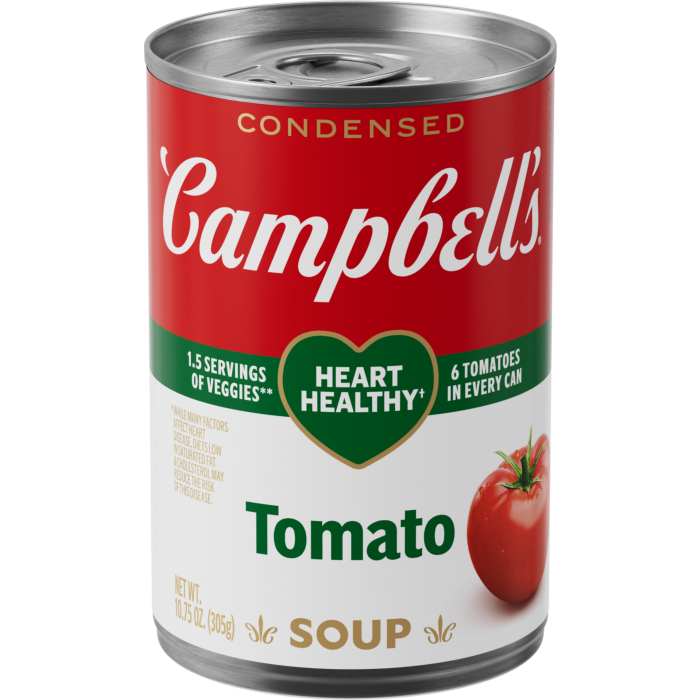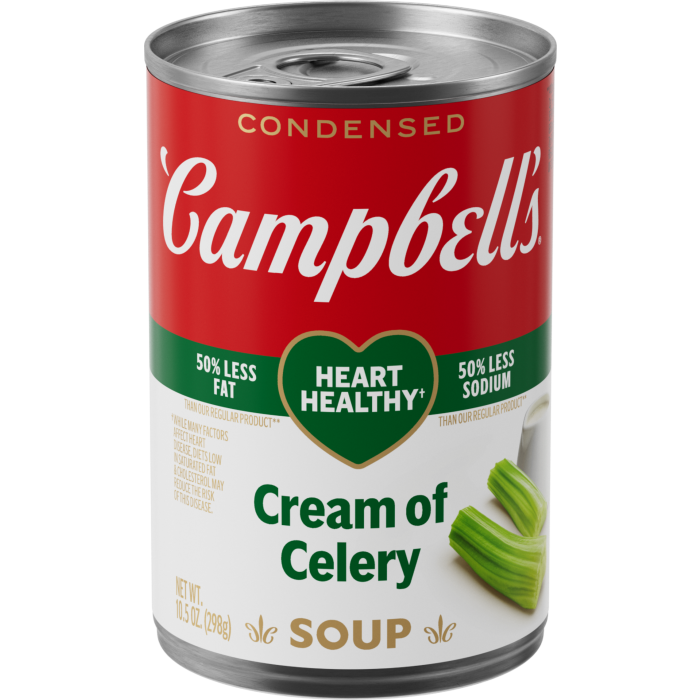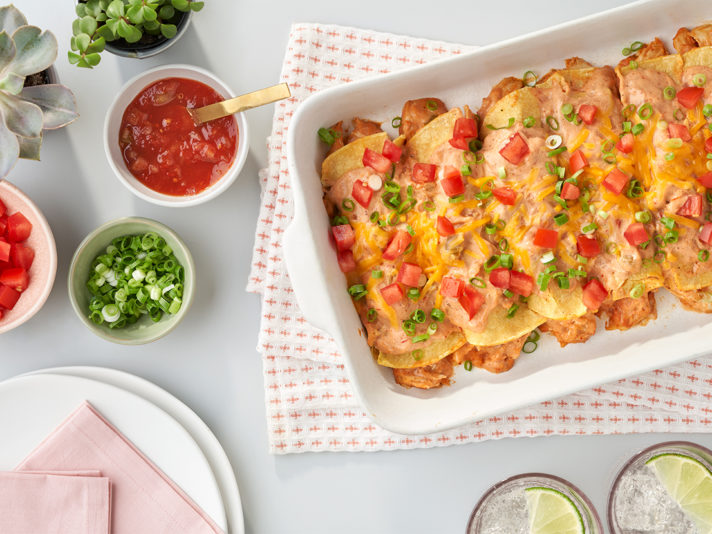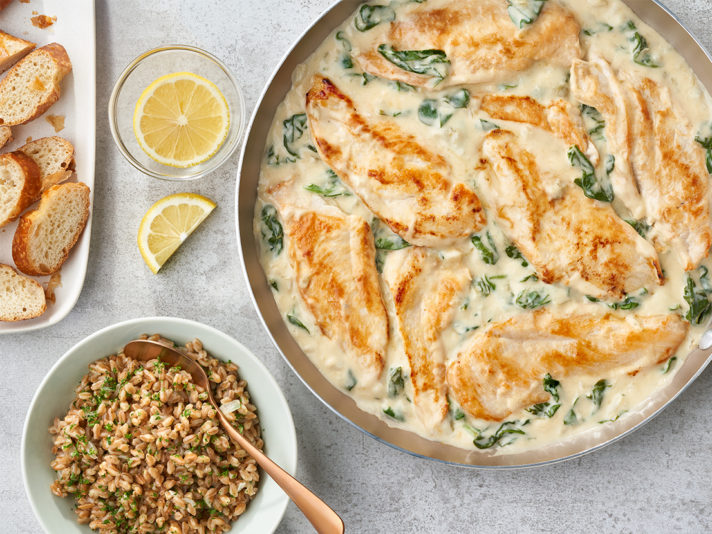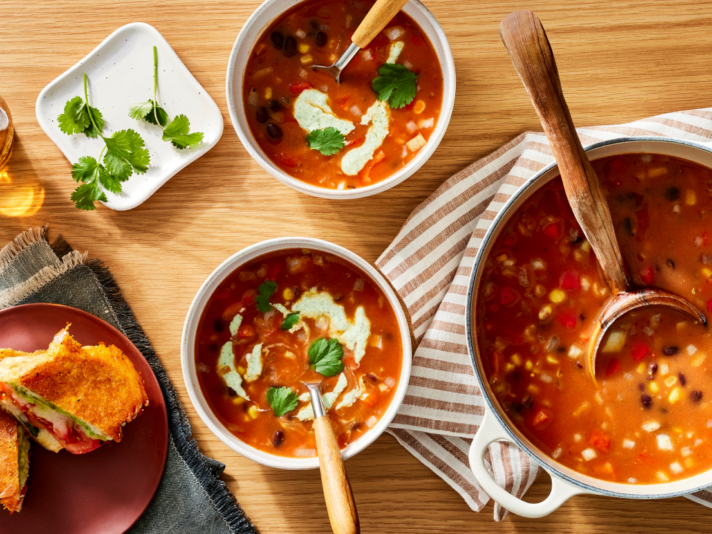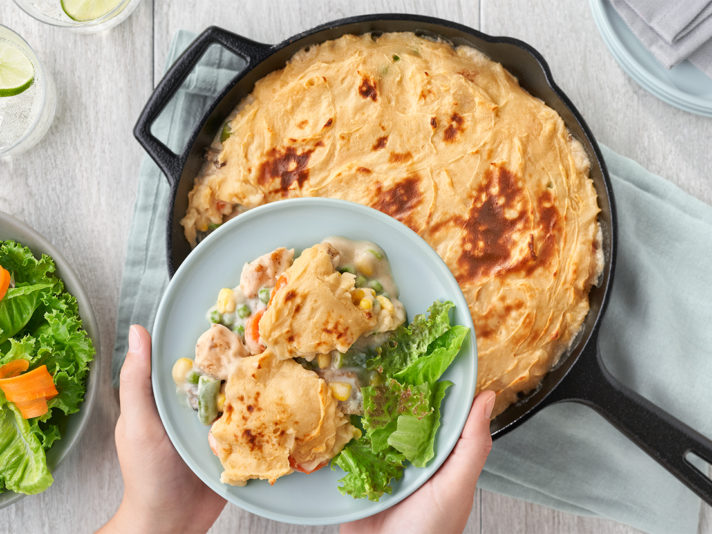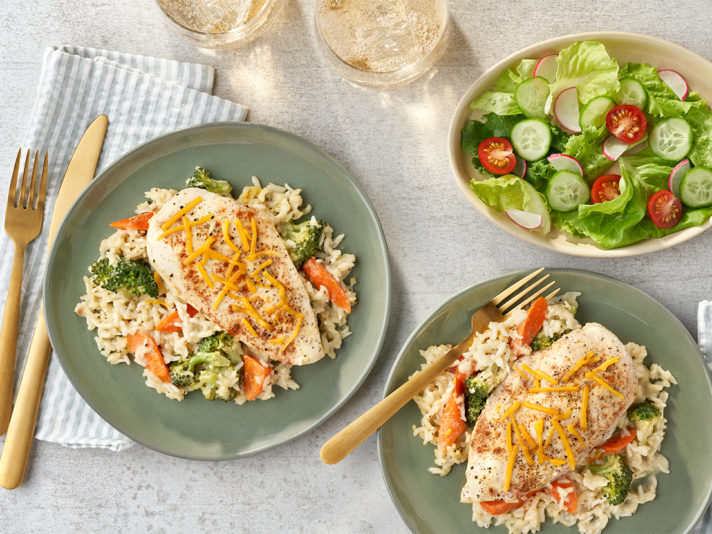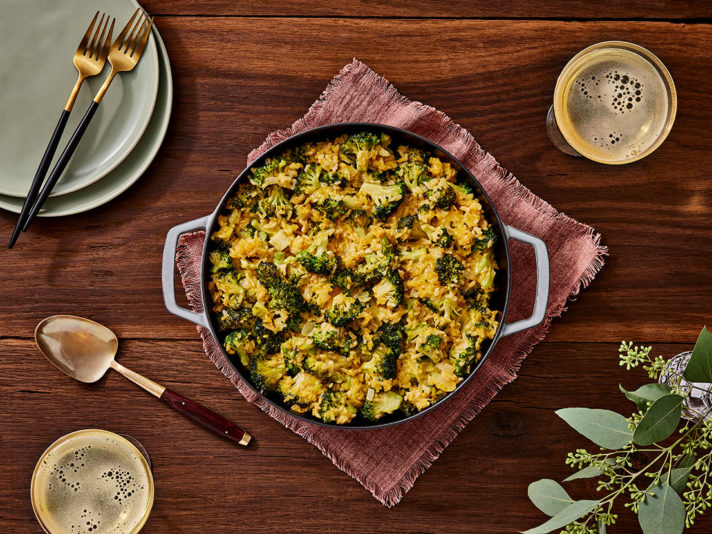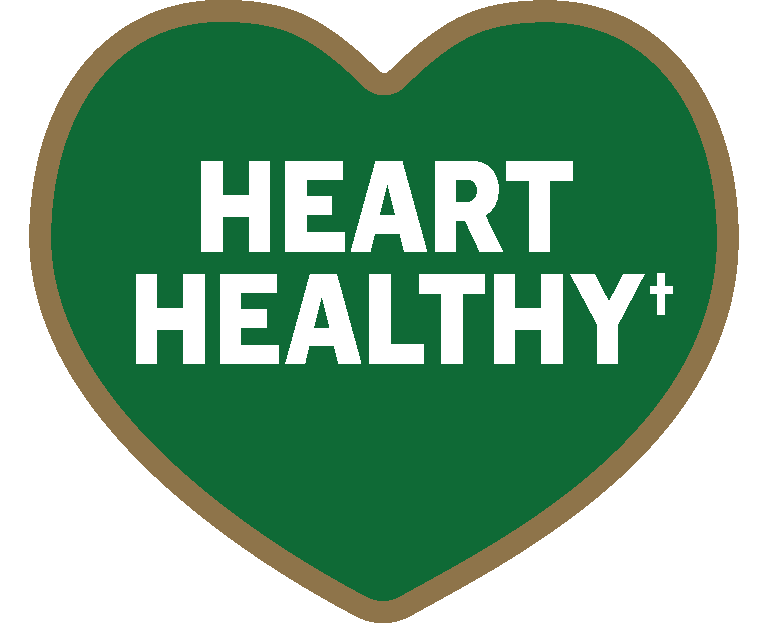
Mm! Mm! Good!® … for Your Heart!
Bring a Smile to Your Spoonful
Each Campbell’s® Heart Healthy† Soup is a bowl full of something delicious and nutritious.
† While many factors affect heart disease, diets low in saturated fat and cholesterol may reduce the risk of this disease.
All Soups

Good for Your Heart. Good for Your Taste Buds.
Find our entire line of Heart Healthy† Soups.
Does Campbell’s® label the top nine allergens (peanuts, tree nuts, milk, eggs, fish, wheat, soy, sesame and shellfish)?
We follow all government regulations regarding product labeling. When any of these top nine allergens is present in any quantity, it will always be listed in our product ingredient statement. We recommend that consumers evaluate each product based on its ingredient statement. To prevent possible cross-contact between products, we use an extensive and effective sanitation procedure between processing operations.Does Campbell’s® label dairy, casein and whey ingredients?
We follow all government regulations regarding product labeling. When dairy products, including milk, butter, casein, whey and cheese, are present in any quantity, they will always be listed in our product ingredient statement. We recommend that consumers evaluate each product based on its ingredient statement. To prevent possible cross-contact between products, we use an extensive and effective sanitation procedure between processing operations.Do you have any gluten free products?
We have hundreds of different products across our portfolio that are gluten free. These include Campbell’s Condensed Gluten Free Soups, Campbell’s Tomato Juice and most of our Pace salsas, Prego Italian sauces, Swanson broths and stocks and V8 juices. Pacific Foods and Late July also offer a variety of gluten free products, while Snyder’s of Hanover and Pretzel Crisps offer a variety of gluten free pretzels. You can find gluten free products on our brand sites, including Campbell’s, Swanson, Pace, Prego, and Snyder’s of Hanover.What process do we use to ensure products are gluten free?
We have a strict two-step process for validating a product as gluten-free and ensuring that it meets FDA’s criteria for the claim. First, we verify all the ingredients are gluten-free, then we analyze the finished product to make sure it meets all relevant requirements. Additionally, we test finished products periodically to ensure continued compliance.Does Campbell’s® use chicken with no antibiotics?
In 2017, we committed to sourcing 100% “No Antibiotic Ever (NAE)” chicken for our diced and canned chicken products in the U.S. We have since achieved this goal. This means we don’t allow antibiotics to be added to the feed, water or any commercial vaccines used by our chicken suppliers. We use tens of millions of pounds of chicken a year, and we’re working with our suppliers to develop a stable, sustainable, supply chain that can continue delivering on this commitment.Does Campbell’s® use cage-free eggs?
We are committed to the humane treatment of animals, and animal welfare is a key part of our vision for a sustainable supply chain. We require our suppliers to implement procedures to prevent the mistreatment of animals, including how they are raised, cared for, transported, and processed. We have begun using cage-free eggs in the majority of our products and are working with our suppliers to achieve this goal by 2025.Does Campbell’s® offer lower sodium products?
We have developed many delicious products using our expertise to help lower the sodium level. Visit our Product Page to explore our low sodium and reduced sodium varieties.Do Campbell’s® products contain GMOs?
GMO is short for “genetically modified organisms.” It is sometimes called genetic engineering or bioengineering and refers to a process where desirable traits or characteristics are introduced into an organism. In America, many farmers who grow canola, corn, soybean and sugar beet choose to use genetically modified seeds and have done so for nearly twenty years because it reduces costs and improves yields. More than 90% of these four crops in America are currently grown using genetically modified seeds. These crops are used to make a wide range of different ingredients that are used in foods we eat every day, ranging from vegetable oils to sugar. We are comfortable using these genetically modified crops because scientists and the FDA, who have been studying genetic engineering for many years, agree that food ingredients made with these methods are safe and aren’t different from other ingredients. We know many of you want to know which ingredients we use are derived from these crops. The following list is a comprehensive selection of ingredients that we use that may be derived from crops grown from genetically engineered seeds. These ingredients are NOT used in all products and aren’t different from other ingredients. Corn- Corn (except sweet corn kernels)
- Corn chips
- Corn oil
- Corn flour
- Corn gluten
- Corn starch
- Corn syrup
- Dextrose
- High fructose corn syrup
- Maltodextrin
- Modified corn starch
- Modified waxy maize
- Citric acid
- Sugar/Sucrose
- Sugar syrup
- Invert sugar
- Molasses
- Brown sugar
- Hydrolyzed soy protein
- Soybean flour
- Soy lecithin
- Soybean oil
- Soy protein concentrate
- Soy protein isolate
- Soybean hulls (fiber)
- Vegetable oil
- Canola oil
- Cottonseed oil
- Flax seed
- Margarine
- Partially hydrogenated cottonseed oil
- Vegetable oil
